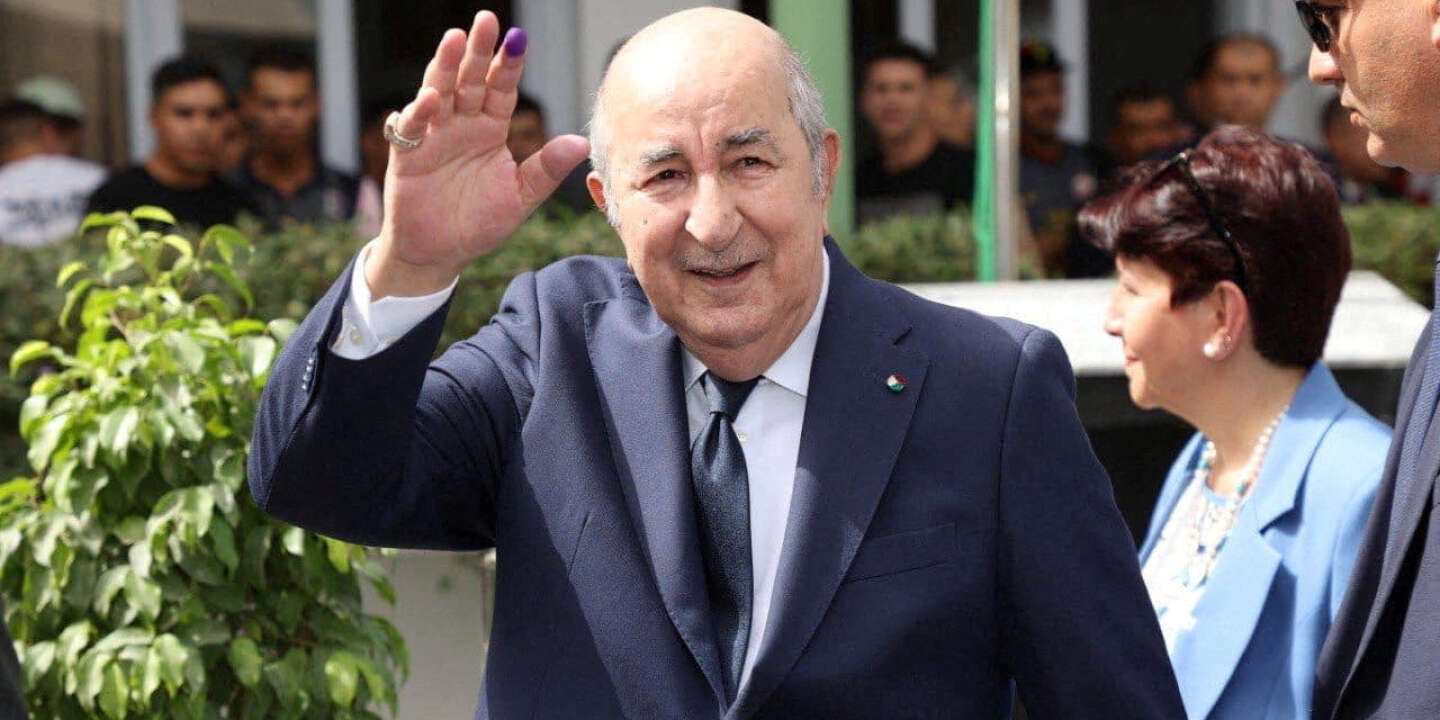
Algeria's Tebboune re-elected president with 94.65% of the vote
Algeria’s presidential election held on Saturday, 7 September 2024, has resulted in the re-election of President Abdelmadjid Tebboune, securing him a second term in office.
Your go-to source for in-depth coverage of political developments, economic trends, social affairs, and vibrant cultural stories from across the continent.

Algeria's Tebboune re-elected president with 94.65% of the vote
This election represents a pivotal moment for the nation, which continues to grapple with significant economic and social challenges.
A Decisive Victory Amid Low Voter Turnout
Abdelmadjid Tebboune, 78, won the election with a sweeping 94.65% of the votes, as announced by Mohamed Charfi, head of the National Independent Election Authority (Anie).
His opponents, Abdelaali Hassani of the Movement of Society for Peace (MSP) and Youcef Aouchiche of the Socialist Forces Front (FFS), garnered 3.17% and 2.16% of the votes, respectively.
Voter turnout was reported at 48% by Anie, an increase from the 2019 election turnout of 39.83%.
Out of 24.5 million registered voters, 5.63 million votes were cast, with 5.32 million of those votes going to President Tebboune.
Conduct and Reactions to the Election
Mohamed Charfi described the election as characterized by “wide transparency” and reflective of the “electoral maturity of the people.”
However, Abdelaali Hassani raised concerns about alleged “violations” during the voting process.
His campaign team cited “pressures on certain polling station officials to inflate results,” particularly regarding voter turnout figures.
Hassani’s team also questioned the Anie’s use of a “mean turnout rate,” a term they found unusual.
Traditionally, voter turnout is calculated by dividing the number of voters by the number of registered voters, a method they believe should have been used instead.
Context and Future Outlook
This election comes at a time when Algeria faces numerous challenges, including economic diversification and reducing unemployment, particularly among the youth.
Internationally, the country aims to bolster its regional influence and modernize its diplomatic relations.
Tebboune’s re-election with an increased vote share compared to his 2019 victory, where he won 58% of the vote, marks a continuation of the political trajectory established since his first term.
As he embarks on his second term, President Tebboune will face significant hurdles, including economic development, social issues, and Algeria’s strategic positioning on the global stage.
How these challenges are managed will be crucial in shaping the country’s future in the coming years.
I am an avid African news observer, and an active member of Daily Mail Africa.
I’m Passionate about staying informed on diverse topics across the continent,
I actively contribute to publishing on political, economic and cultural developments in Africa.